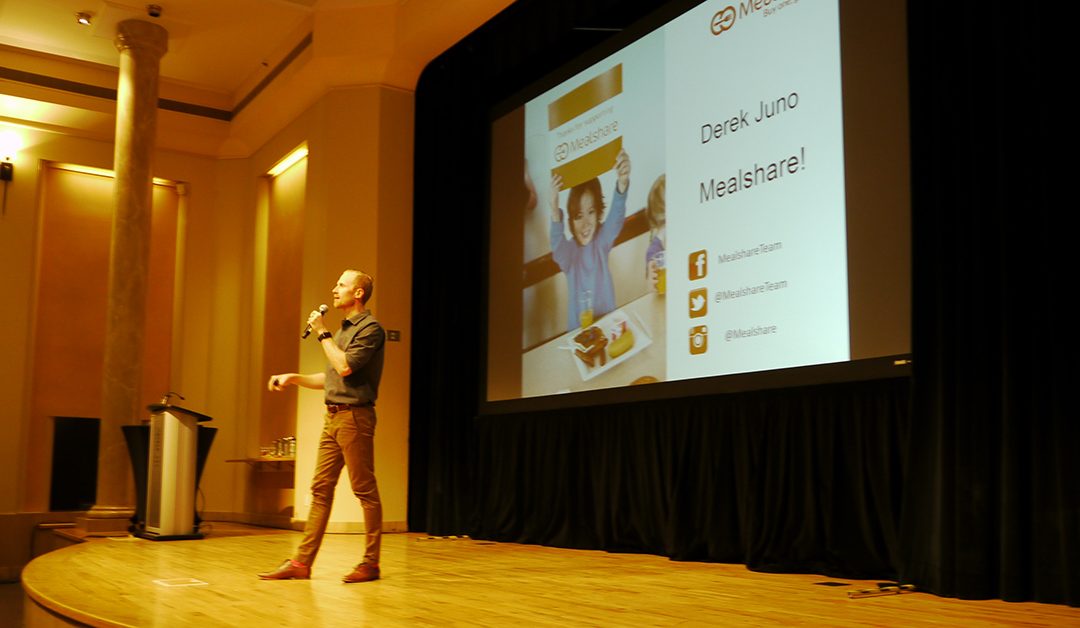By Carlos Berti, Gustavson co-op student
On the cusp of graduation, Gustavson students gathered in the Victoria Conference Centre for the annual ‘Beyond your BCOM’ event last month to hear alumni and business professionals impart advice on how to manage the next phase of their professional lives.
On hand to give some tips was Derek Juno, Gustavson alumnus and VP of Business Development for the non-profit Mealshare.
Juno, who was shortlisted as one of Gustavson’s ’25 Alumni to Watch’ in 2015, had serious advice for the young entrepreneurs about to graduate. “Make time to work on your life, not just in your life” Juno says, “often I was so busy, especially as a business student, running around and trying to get things done, that I would never make time for myself.”
After deciding the graduate to job life track wasn’t for him, Juno took off on a four month travel journey that turned into over a year and a half overseas. His experience travelling across south-east Asia solidified his commitment to social entrepreneurship. “I realized if I could marry the way in which I made money, directly to impact, I would be a much happier and more fulfilled individual,” says Juno.
Opportunity, and perhaps fate, came knocking at Juno’s door over a year after he had begun his travels. He was working as an English teacher at an orphanage in Cambodia when a friend from Gustavson called unexpectedly. “He pitched me this idea that was so simple, so impactful, and that could scale like crazy, and that was Mealshare,” Juno recalls.
Mealshare, a non-profit organization with the lofty goal of ending world hunger, began when co-founders Jeremy Bryant and Andrew Hall (a fellow Gustavson alumnus) learned over one million youth in Canada were food insecure. Yet another statistic had also shocked them — over eight million Canadians ate out every single day. Their solution was to combine these two statistics to create Mealshare. “It was like a ‘Toms shoes’ for food,” Juno says.
Mealshare partners with local restaurants and “sponsors” specific menu items, known as “Mealshare Items.” When a customer orders a Mealshare item, the restaurant donates to Mealshare, which then provides the majority of those funds to either their local or international charity partners, to provide that other meal to a youth in need.
For Juno, it was combining his entrepreneurial spirit with real-world impact that provided meaning to business. “I remember when we provided our thousandth meal, I thought ‘that’s really cool, we’re having an impact,’” he says. Now, almost 5 years since Mealshare was founded, the company has had considerable growth. “We’re about to reach two million meals served,” Juno adds.
Juno sees the business model of social entrepreneurship as the future of charity and non-profit work. And Mealshare might just be the start: “people’s expectations of business are increasing, and they want businesses to do better – to be stewards of our planet and help people on the bottom of the pyramid.”
“In the next five to ten years, we hopefully won’t be talking about social entrepreneurship — it’ll just be ‘entrepreneurship’,” Juno says, adding, “people will have this understanding that we can’t keep treating the world this way, every business needs to doing their part and having an impact. It [social and environmental responsibility] shouldn’t just be a marketing gimmick, but an integral part of being an entrepreneur.”


